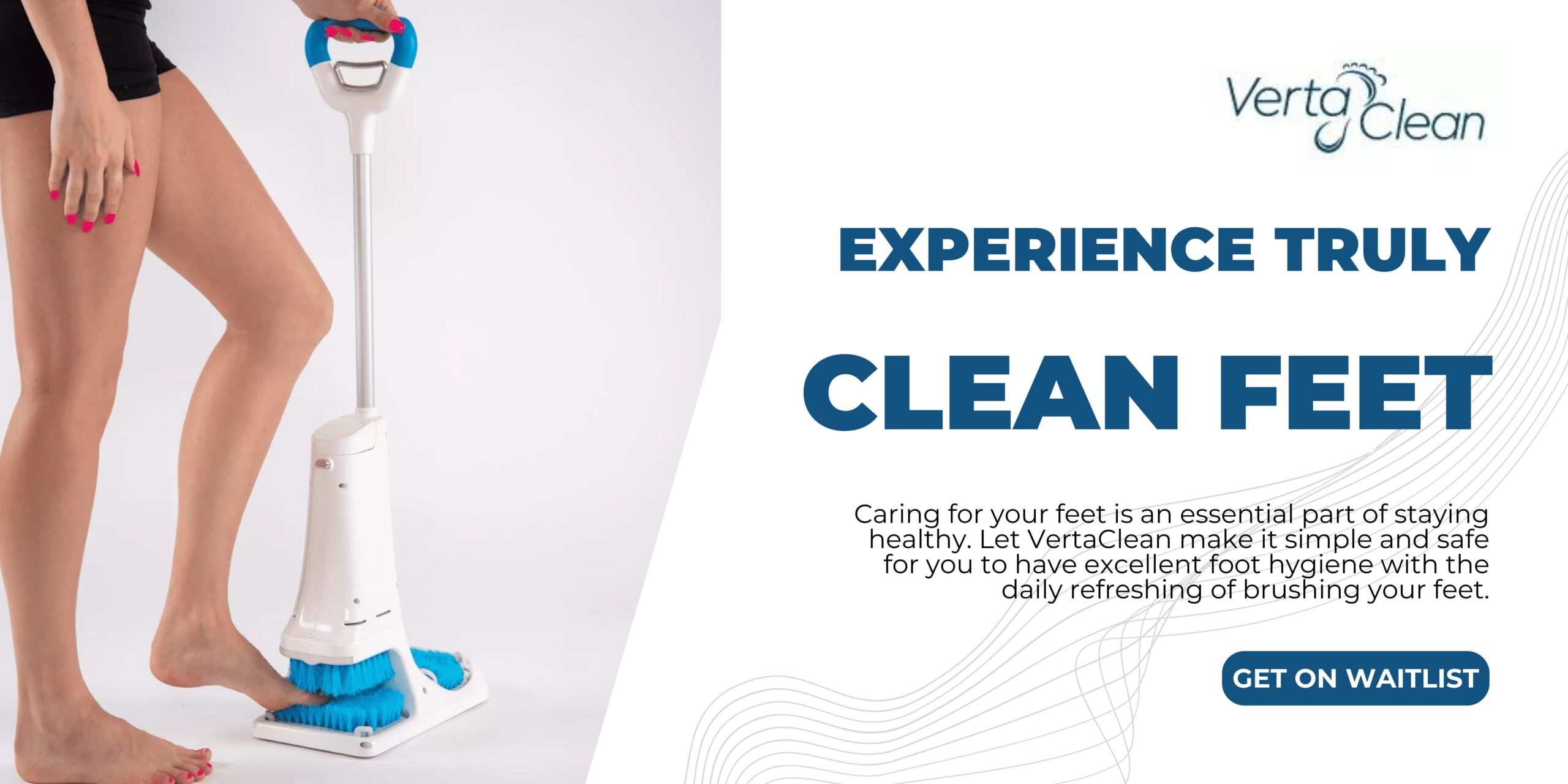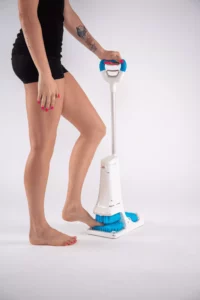When it comes to maintaining foot hygiene, the combination of a good foot scrubber and the right soap can make all the difference. Not all soaps are created equal, especially when it comes to the unique demands of foot care. Various types of soaps offer specific benefits, and choosing the appropriate one can enhance the effectiveness of your foot scrubbing routine, ensuring your feet stay clean, healthy, and free from odors and infections.
Firstly, it is crucial to understand the different **Types of Soaps for Foot Hygiene** available in the market, from antibacterial options to organic and hypoallergenic formulas. Each type caters to different needs and preferences, affecting how well they work with a foot scrubber. Secondly, the **Properties of Effective Foot Soaps** play a pivotal role in achieving optimal results. These soaps should not only cleanse but also offer additional benefits such as moisturizing and exfoliating properties.
For individuals with sensitive skin, considering **Skin Sensitivity and Allergies** is essential. Some soaps are specifically formulated to be gentle and free from harsh chemicals, reducing the risk of irritation or allergic reactions. Additionally, to combat common foot issues such as athlete’s foot or toenail fungus, soaps may include **Antibacterial and Antifungal Ingredients** which provide an added layer of protection against pathogens.
Finally, the **Soap Formulation (Bar, Liquid, Gel)** can influence the ease of use and effectiveness in conjunction with a foot scrubber. Each form has its own advantages and can affect the user experience differently. Understanding these aspects will guide consumers in making the best choice for their foot hygiene routine, ensuring clean, healthy feet with every scrub.
Types of Soaps for Foot Hygiene
Maintaining foot hygiene is crucial for overall health and comfort, especially considering how much strain and use our feet endure daily. When it comes to effective foot care, the type of soap used can make a significant difference. Soaps designed specifically for foot hygiene often contain ingredients that target bacteria and fungi, which are common sources of foot odor and infections.
Traditional soaps might clean the feet but may not address issues like athlete’s foot or toenail fungus. Specialized foot soaps often include antibacterial and antifungal ingredients such as tea tree oil, peppermint, and eucalyptus, which not only cleanse but also provide a cooling effect that helps soothe tired feet. These ingredients are effective in preventing and treating common foot-related issues, making them ideal for inclusion in a foot care routine.
Moreover, many foot soaps come with exfoliating properties, thanks to ingredients like pumice or crushed walnut shells. These exfoliants help remove dead skin cells, keeping the feet soft and smooth while preventing the buildup of calluses and dead skin, which can harbor bacteria and fungi.
In addition to choosing the right type of soap, it’s also important to consider the soap’s formulation. For instance, bar soaps are economical and widely available, but liquid or gel soaps can be more hygienic due to their packaging, reducing the risk of cross-contamination in communal areas like showers and bathrooms.
Overall, selecting the appropriate type of soap for foot hygiene is a key component of a comprehensive foot care regimen, ensuring that the feet are not only clean but also healthy and free from common ailments.
Properties of Effective Foot Soaps
When considering the properties of effective foot soaps, it is essential to understand what characteristics make a soap suitable for foot hygiene. Effective foot soaps should have specific attributes that address the unique needs of foot care, focusing on cleansing, moisturizing, and combating foot-related issues like odor, bacteria, and fungi.
Firstly, effective foot soaps should include ingredients that provide deep cleansing. The feet contain numerous sweat glands and are prone to accumulating dirt and bacteria. A good foot soap should be able to break down and remove these impurities effectively without stripping the skin of its natural oils. Ingredients such as activated charcoal, clay, or deep-cleansing oils can be beneficial in achieving this.
Moisturizing is another critical property of foot soaps. The skin on the feet, especially the heels, can become extremely dry and cracked if not properly moisturized. Look for foot soaps that contain hydrating ingredients like glycerin, shea butter, or aloe vera, which help to maintain the moisture balance of the skin, keeping it soft and supple.
Additionally, since the feet are often exposed to conditions that may promote fungal and bacterial growth, such as sweat and warmth inside shoes, effective foot soaps should contain antibacterial and antifungal ingredients. Ingredients like tea tree oil, eucalyptus oil, and peppermint oil are popular for their natural antimicrobial properties, providing an added layer of protection against foot odor and infections such as athlete’s foot.
In summary, when selecting a soap specifically for foot care, it is crucial to choose one that not only cleanses and moisturizes but also contains ingredients that can prevent and combat common foot issues. This comprehensive approach ensures that the feet remain clean, healthy, and free from discomfort.
Skin Sensitivity and Allergies
When considering the effectiveness of soaps to use with a foot scrubber, it is crucial to take into account skin sensitivity and allergies. This aspect is particularly important because the feet can be more susceptible to irritation due to their frequent exposure to different environments and their role in bearing the body’s weight. Individuals with sensitive skin or allergies need to be cautious about the types of soaps they use to avoid adverse reactions.
Soaps formulated for sensitive skin are typically free from harsh chemicals, fragrances, and dyes, which are common irritants that can trigger allergic reactions or exacerbate skin sensitivity. These soaps often contain natural ingredients and moisturizers that soothe the skin rather than causing dryness or irritation. It is also beneficial to look for hypoallergic or dermatologist-tested products, which indicate that the soap has been specifically designed to minimize the risk of allergic reactions.
Furthermore, when using a foot scrubber, the mechanical action of scrubbing can itself irritate sensitive skin if not done gently. Thus, selecting a soap that forms a good lather can provide a protective barrier between the scrubber and the skin, reducing the friction and potential for irritation. Ultimately, understanding and catering to individual skin sensitivity and allergies can significantly influence the comfort and health of the feet, making the choice of soap a key factor in foot care routines.
Antibacterial and Antifungal Ingredients
When considering the effectiveness of soaps used with a foot scrubber, it’s crucial to focus on soaps that contain antibacterial and antifungal ingredients. These ingredients play a vital role in preventing and treating common foot issues like athlete’s foot, odor, and infections which are caused by bacteria and fungi thriving in the warm, moist environments often associated with feet.
Antibacterial ingredients, such as triclosan or benzalkonium chloride, help eliminate bacteria that can cause odor and infections. Antifungal components like ketoconazole, clotrimazole, or tea tree oil are specifically effective against fungi that cause conditions such as athlete’s foot. Using a soap that includes these types of ingredients in conjunction with a foot scrubber can help in thoroughly cleansing the feet, reaching into the crevices and removing dead skin cells, thereby providing a more hygienic and refreshing experience.
Moreover, it’s not just about removing pathogens; these ingredients also help in maintaining the natural balance of the skin on the feet, preventing over-drying, and maintaining proper hydration levels. This is essential as the feet, often confined within shoes for long periods, are prone to moisture loss which can lead to dry, cracked skin. Therefore, choosing the right soap with these specific ingredients can significantly elevate the effectiveness of a foot hygiene routine.
Soap Formulation (Bar, Liquid, Gel)
When considering the types of soaps to use with a foot scrubber, the formulation of the soap—whether it is in bar, liquid, or gel form—plays a crucial role in its effectiveness and ease of use. Each type of soap has its unique advantages for foot care.
Bar soaps are typically firm and convenient for direct application to the feet or the scrubber. They are often considered to generate less waste in packaging and can be economical. However, bar soaps may sometimes hold onto bacteria if not stored properly after use, which is an important consideration for foot health.
Liquid soaps are a popular choice for use with foot scrubbers as they can be easily applied and create a rich lather, enhancing the scrubbing process. They are also generally more hygienic than bar soaps since the soap is dispensed from a container, minimizing contact with bacteria.
Gel soaps, with their thick consistency, are another excellent option. They can provide a cushioning layer that helps the scrubber glide smoothly across the skin, reducing irritation and ensuring a thorough cleanse. Gels often contain additional moisturizing agents which are beneficial for keeping the skin on the feet soft and supple.
Choosing the right type of soap formulation depends on personal preference, skin type, and specific foot care needs. It’s also worth looking for soaps that contain ingredients specifically targeting foot issues, such as odor control, dryness, or fungal infections. When combined with a good scrubbing technique, the right soap can significantly enhance foot hygiene and comfort.




